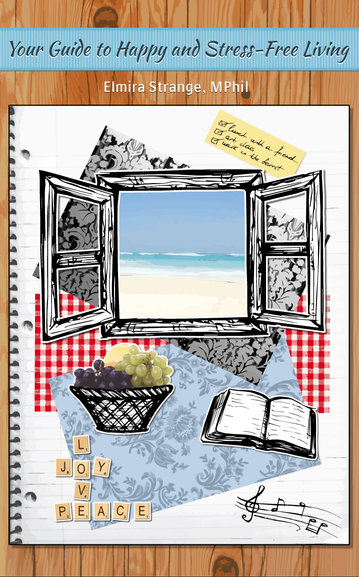Why do I forget things?
It’s a well-known fact that most people struggle to remember things in their everyday lives.
Do you tend to forget where you put your keys, have you ever walked into a shop and have forgotten what you wanted to buy, or even what your friend said to you this morning, can you remember what you ate for yesterday’s lunch?

by Elia Strange
More often than not, these memory failures do not lead to serious consequences, although sometimes they do.
For example, there was a case of a bus driver who destroyed the top deck of a double-decker bus when he took it under a bridge that was too low. It turned out that the bus driver usually drove a single-decker bus on that route, and out of the habit took the double-decker the same way. The result of this habitual thinking, or absent-mindedness, turned out to be disastrous.
So why do we forget things?
1. We often forget things because we are busy with automatic, habitual tasks in highly familiar surroundings, which do not require our concentration and focus.
Or in other words, you were doing something on automatic pilot, for example, your drive to work or home, and now you all ready have trouble remembering so many things related to the journey.
Or, for example, you fed your pet this afternoon then after an hour or so you can’t remember if you actually did it or not. If, when you fed your pet, you were doing everything habitually, i.e. reached for the box, filled the pet’s dish with food, whist thinking about your plans for weekend, then the chances are – you will doubt if you fed your pet today at all.
You could check to see if there are remains of that food in the pet’s dish (which rarely happens in my house) but as soon as you do the pet will think that it is feeding time again and get all excited.
2. We sometimes forget things because when we are doing or planning them, our thinking was ‘somewhere else’. For example, you were worrying about something, or perhaps were distracted by noise from outside, when you wrote your shopping list.
Now, not only can you not find your shopping list, you cannot even remember anything from that shopping list at all.
3. About 40% of our mistakes happen because we simply do not pay enough attention to what we are doing. This is why it is much more possible that you might slip or trip on the floor if a family member (or a colleague at work) has left something on the floor unexpectedly.
4. Sometimes it could happen if you were doing 2 or more things at the same time (multitasking), your chances of getting things 100 % right significantly goes down.
For example, if you were talking to your friend and then suddenly you hear a noise from outside, it distracts you, but instead of looking out of the window, you might actually answer your phone and ask who is there.
*****************************************************
So, how to remember things?
Here are some ideals and suggestions for you that I use personally:
1. Pay attention to what you are doing. For example, if you are putting your car keys, say to yourself (or out loud for a start): ‘I am putting my car keys on the table/windowsill/cabinet/drawer ’. Trust me, you will remember where you put them!
2. Memorise things in a funny way. For example, if you need to remember to buy bread, fruits and milk from the supermarket, imagine an ‘alive’ bread who is talking to the ‘fruits’ whilst they are all swimming in a swimming pool filled with milk.
You can also add other products to the picture, only I have found that I have had to make it funny or it would not work! Once you’ll get to the supermarket, it will be enough to remember only one ‘product’ from the shopping list, as the rest will pop up in your head in the image that you made.
3. Also, you can use the supermarket’s layout (in your head) that you fill with things that you want to buy. For example, you can imagine yourself entering the ‘virtual’ supermarket, where at the entrance you can see a basket with bread.
Then, as you continue your journey to the first aisle, you can see that there is milk on floor in front of you, and so on. Once you get to the actual supermarket, these images will pop up in your head as you will be following your pre planned route (this works very well until the supermarket changes things about).
4. If all this fails or you are buying from an unknown shop then you are better off with a shopping list.
At home use the pen-and-paper method and actually right down (during the week) all of the things that you need to buy. This way, you’ll definitely get everything you wanted, and if you stick to buying what is only written down then you might avoid buying those ‘spur of the moment’ things that you don’t really need.
5. If you want to learn something really well, then try teaching or telling it to others. This works with facts, stories, jokes, and so on, that you want to remember.
The more you tell them to others, the more it will stick to your head. This method is really good for students who would like to remember an important lecture or theory. They just need to tell it to others (who are willing to listen this!) and they will remember the lesson in no time.
6. If you are in a situation where you are listening to someone and you really need to remember exactly what he or she said, then don’t do anything else whilst you are listening to them.
My personal choice is to record the conversation on to a Dictaphone, multitasking is a bad environment for remembering things even if you are just making relevant notes in a writing pad!
Other articles you might like:
7 Reasons for our uhappiness
Stop irrational thinking in 6 easy steps
Why do I need to be in a relationship to be happy
What to do when you are stressed
or go to: Archives of all articles
Or follow me on Twitter and Google+ by clicking on the symbols below:
Sign
up below to receive my free email newsletter with new fresh articles to
help you to become healthier and happier.
It's sent about once a month.
No spam. No
sharing of your email address. Easily unsubscribe at any time.
Best Articles:
10 tips to strengthen your marriage
Best ways to manage your stress
How to get what you want (the Law of Attraction)
Why do I need to eat healthy?
Signs and stages of stress
13 Facts about sugar addiction
7 Reasons for our unhappiness
Why people commit suicide
How to get a good night sleep
Try these Tests and Quizzes:
Is it time to take stress seriously?
How well do you know yourself?
Can you talk to teenagers?
Do you have a time to recreate?
Can you cope with stress well?
The Latest Articles:
Green Smoothie Recipe
Stress in Parents and Carers of disabled children (VIDEO)
Did you find your dream job yet?
Is an eye mask good for sleeping?
How to look and appear confident
Why am I tired all the time?
Exercise tips: 8 easy ideas for losing weight and become fitter
15 Sure signs that you are stressed
Are memory foam mattresses worth it?
How stress affects your health: What stress is doing to your body
How to get what you want (the Law of Attraction)
How to be more patient
How to deal with SAD: Autumn depression
How to stop negative thinking
How bad is your memory? (Fun Quiz)
What is love - in children words
How to make people like you?
Why do I forget things?
10 Tips to strengthen your marriage
Would you move abroad?
Are holidays worth it?




New! Comments
Have your say about what you just read! Leave me a comment in the box below.